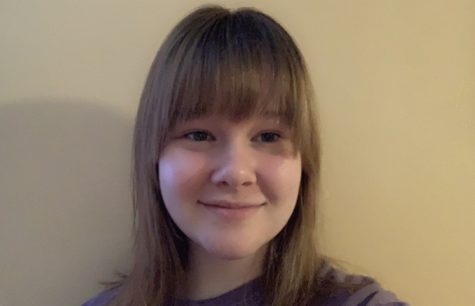Johnstown Symphony Orchestra conductor wins Grammy and plans for the future
April 12, 2021
After years of bringing orchestral music to thousands and stunning countless crowds with music, many in his shoes would feel their work was complete, but Grammy winning conductor James Blachly is far from done with his pursuit to symphonize the world.
At just 41 years old, Blachly splits his time between Johnstown and New York City as the Music Director for both the Johnstown Symphony Orchestra (JSO) and the Experiential Orchestra, and on occasion will make guest conducting appearances elsewhere. Most recently, the conductor won a Grammy award for Best Classical Solo Vocal Album for his 2021 world premiere recording of Dame Ethel Smyth’s The Prison, alongside vocalists Sarah Brailey and Dashon Burton, and the Experiential Chorus and Orchestra.
Blachly first encountered The Prison in 2015 and felt like he “Stumbled on something very important.” He was drawn closer to the piece the more he researched about the composer, Smyth, whom he deems “One of the most interesting and fascinating historical figures [he’s] ever encountered.” He says that the piece was personally a process of discovery, because he first encountered it as a handwritten manuscript, from which he initially played and experienced in excerpts, and eventually gained a profound connection to. From this he then commissioned and edited a new score.
There is a line from the piece that reaffirmed to Blachly the importance of it being recorded and released, which is, “Tell them that no man lives in vain, That some small part of our work, For reasons unknown to us, has been tossed aloft, And garnered in forever.” He explains this line to mean that “You may not know the purpose behind your work, but there is value to it beyond what you might imagine.”
The Prison, which had been written in 1930 and premiered in 1931, had only been performed with orchestra once after Smyth’s death in 1944, which makes its US premiere almost 90 years after its composition all the more significant.
The 2021 recording of The Prison began with James Blachly and the JSO’s April 7, 2018 performance of the piece at the Pasquerilla Performing Arts Center on the University of Pittsburgh at Johnstown campus, where it was heard by an audience in North America for the first time. Blachly has stated that for this reason the Johnstown community and the JSO are largely credited to the Grammy victory.
Blachly has been Music Director for the JSO for 5 seasons and often expresses how gratifying his experience has been working with them and witnessing the impact of the work they have been able to do. “It’s been a really rewarding five years so far,” he reflects.
Moving out of the pandemic, Blachly is encouraged by the prospect of being able to reach audiences in person as well as virtually in the future, “I think we’re in a position to really jump out of the gate when we’re able to be together again… Covid has given us some new tools to reach people.”
The orchestra is currently moving to resume in-person concerts and reunited last month for the first time since the outbreak for a virtual educational concert for kids of all ages. “I think that we’re actually going to find a lot of new energy when we emerge from Covid,” Blachly states, “And I’m very optimistic about our momentum and our ability to grow even more than we have in the past 5 years.”
In the past decade, Blachly has launched and helped run numerous musical projects and programs such as the New Orleans program Make Music NOLA where students can receive high quality music instruction, after school programs, and workshops. He co-founded the OMBC Foundation, an online resource for the orchestral music of black composers where he oversaw the compiling of a database of more than 1,000 published orchestral works for the African Diaspora Music Project, and he also co-founded The Dream Unfinished, an orchestra focused on social justice, to name a few.
He has dedicated much of his time and focus to music education and spreading unique musical experiences to all. Through these programs, Blachly ensures that people will be able to experience music that speaks to them in a way that nothing else can. He spoke of the importance of music in the lives of children and the power that these experiences have on their ability to learn and develop as a person. He believes that music is as vital to a child’s growth as air and water.
Blachly has consistently advocated for the importance of amplifying contemporary artists and composers. He says that it is vital to experience the messages and stories from these modern artists that are living among us through the magic of sound that the orchestra provides. He describes it as “A lens into our own time… Music has always been contemporary, it’s always been speaking to people in their own time and yet making that one moment in time universal and eternal.” He likens the event of a photographer taking a photo and capturing its essence in a frame to a composer translating a time or experience into a music piece and how it can “Somehow create a sense of eternity from that.”


